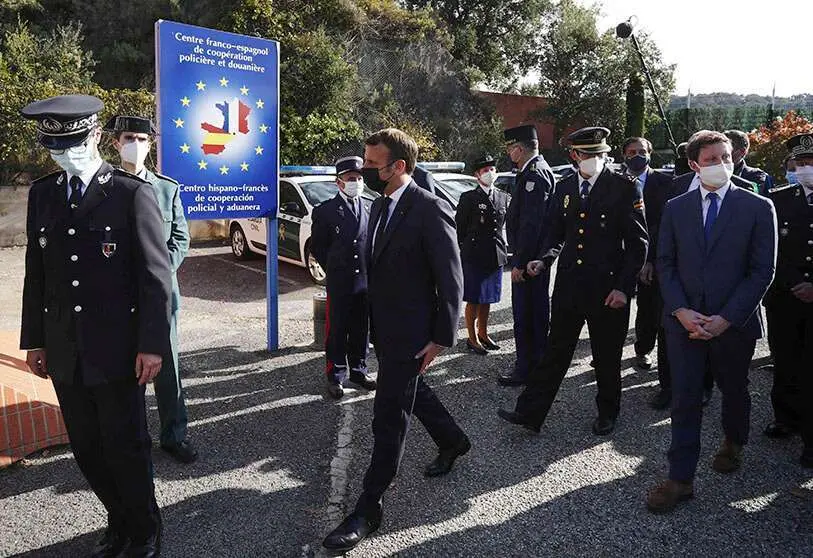Macron after the Nice and Vienna bombings: rethinking Schengen

Last Thursday, November 5, Emmanuel Macron announced the strengthening of all his border controls in order to address the threat of Jihadist terrorism, illegal trafficking and irregular immigration. This measure to combat the exogenous terrorist threat complements those already implemented by Macron's government in recent months to put an end to the endogenous, that is, national, terrorist threat. The measures to put an end to Jihadist radicalisation in France include the design and establishment of the departmental Cell for Combating Islamism and Community Replunge (CLIR), the creation of the "neighbourhoods of republican reconquest" (QRR) and the end of the system of teaching language and culture of origin (ELCO).
In addition to these measures, the police and gendarmerie intelligence services carried out specific operations on the ground to close down places of worship and associations promoting a radical Islam "that does not respect the values of the Republic". In December Macron intends to present the bill to reinforce laicism, formerly known as the Islamic separatism law, which will deal in depth with several of these measures.
To put an end to the exogenous threat, Macron is going to double the security forces on the land borders of Spain and Italy, deploying 2,200 police and gendarmes and 200 military. This decision was justified by the increase in the Jihadist threat in Europe following the attacks in Nice and Vienna. Both culprits had crossed through several European states before reaching their destinations. As a result of the mobility of European terrorists, in the declarations of Thursday 5 November Macron, for the first time, stated the need to rethink and re-establish the rules of free movement in Europe, which had already been questioned by other European countries owing to the pandemic and uncontrolled irregular immigration.
This questioning of Schengen for Macron is not related to internal mobility at a European level, but to the management of external borders. Following his controversial statement, France has called a meeting with several European leaders this Tuesday 10 November to discuss the Jihadist threat and the Schengen area. By video conference, Angela Merkel will meet from Berlin and the presidents of the European Council and the European Commission from Brussels. Austrian Chancellor Sebatian Kurz will take part in the video conference after a meeting with Macron at the Elysée Palace. This meeting is an initial contact with European leaders in preparation for the European Council on December 10, at which Macron intends to propose the first measures with the aim of promoting them during the French Presidency of the Council that begins in 2022.
Despite the fact that the specific measures are still unknown, the President of the Council, Charles Michel, and Clément Beaune, French Secretary of State for European Affairs, have shared some of the potential proposals that are being put forward at European level. One of them is the strengthening of European strategies for monitoring jihadists. Apart from sharing information more fluently, the aim is for the European agency Frontex to be able to carry out part of this monitoring, and to this end, Clément Beaune has reiterated the need to strengthen and extend this agency, which would be increased from 1,500 to 10,000 troops.
Furthermore, on the eve of the November 10 meeting, the president of the Commission proposed a measure to combat Jihadist radicalisation at European level, the creation of a European Institute for the training of imams. This measure is aimed at supervising the training of imams and ensuring that their messages do not contribute to the "ideology of hatred". This measure was already proposed by Macron at the French level in its presentation of the law against Islamic separatism in order to put an end not only to radicalisation but also to foreign influence on the Muslim community in France. Although the president of the Commission has not wished to specify more about this educational institution, one of the problems is the lack of legitimacy this training institute could have in the European Muslim community. If its only objective is to control the community, Muslims will continue to choose to train imams abroad. Europe must count on the Muslim community to propose such initiatives to ensure that its approach meets the needs of European Muslims and not just those of governments.

